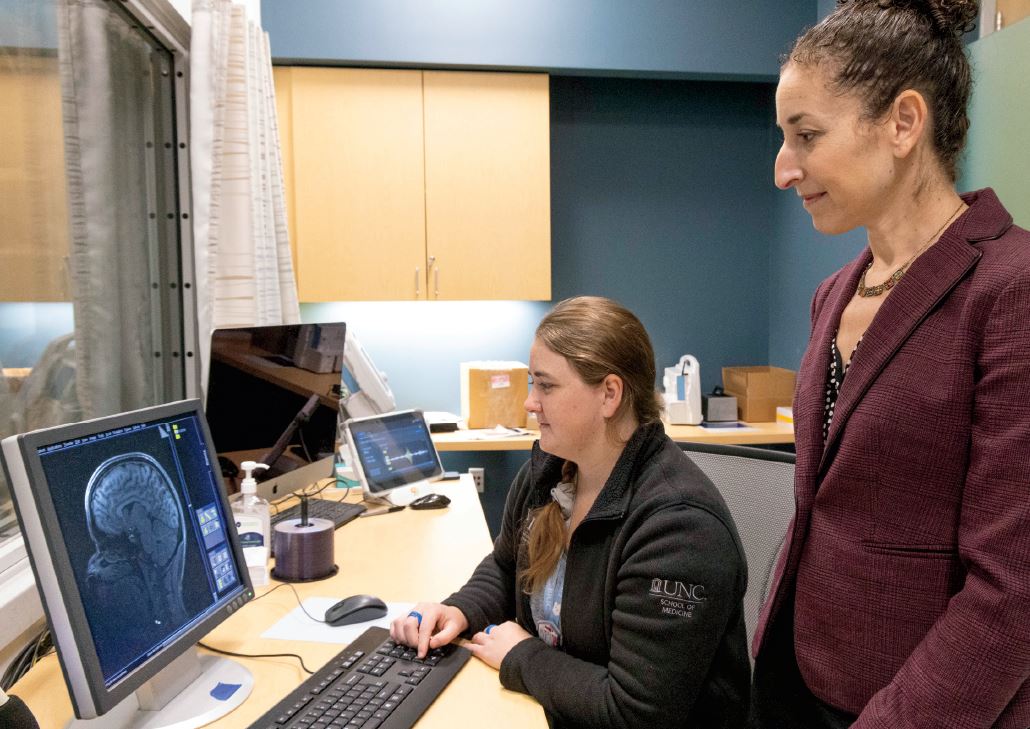Social Media, Smart Phones and the Adolescent Brain

“Scientific research, like ours, will hopefully create the impetus for more monitoring, oversight and regulation of social media platforms.” — Eva Telzer, center co-director (right)
Two major gifts from the Winston Family Foundation during the Campaign for Carolina put Carolina at the forefront of research into how social media usage could have long-standing and important consequences on the development of the adolescent brain.
In one of the first long-term studies on adolescent neural development and technology use, researchers from the Winston National Center on Technology Use, Brain and Psychological Development in the College of Arts and Sciences found that adolescents’ habitual checking of social media is linked with subsequent changes in how their brains respond to the world around them.

“Most adolescents begin using technology and social media at one of the most important periods for brain development during our lifetime,” said study co-author Mitch Prinstein, Ph.D., ABPP, chief science officer at the American Psychological Association and John Van Seters Distinguished Professor of Psychology and Neuroscience, who also co-directs the center. “Our research demonstrates that checking behaviors on social media could have long-standing and important consequences for adolescents’ neural development, which is critical for parents and policymakers to consider when understanding the benefits and potential harms associated with teen technology use.”
James Winston Jr. ’81 (Ph.D. ’92), a trustee of the Winston Family Foundation, has decades of experience in the field of addiction. He has seen powerful and alarming correlates between increased device use and addiction and was driven to jump-start this initiative at UNC in 2018. As the original seed grew and the national narrative coalesced around increasing concern for adolescent mental health, it became clear that more needed to be done not only to educate parents but to establish the neurobiological science behind the trends. The Winston National Center is the next step in that effort.
“The teenage years mark rapid brain development that makes teens highly sensitive to their environment. Technology-mediated contexts have the potential to ‘rewire’ the developing brain,” said Eva Telzer, Ph.D., a UNC-Chapel Hill associate professor of psychology and neuroscience and center co-director. “Scientific research, like ours, will hopefully create the impetus for more monitoring, oversight and regulation of social media platforms.”
The Winston National Center will create more tools for parents, caregivers and teens to make better informed choices about how they interact with technology and social media. This gift from the Winston Family Foundation establishes the first endowed professorship in the department of psychology and neuroscience, the Winston Family Distinguished Professorship; provides seed funding to support two additional assistant professors, an expanded research team, two data analysts and additional staff members dedicated to strategic partnerships and educational outreach to parents and teachers.

